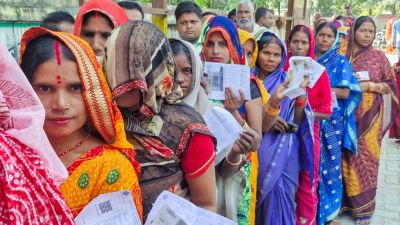N-separation at fairly advanced stage: PM
Indicating that India is pushing to quickly meet commitments made in the Indo-US nuclear deal, Prime Minister Manmohan Singh today said that...

Indicating that India is pushing to quickly meet commitments made in the Indo-US nuclear deal, Prime Minister Manmohan Singh today said that the exercise for separating civilian and military nuclear facilities is at a ‘‘fairly advanced stage’’.
Singh’s statement on the nuclear deal—made to reporters en route to Kuala Lumpur where he will attend the ASEAN summit and East Asian summit—assumes significance as there have been indications that the US has been going slow in putting in place a legislation to be approved by the US Congress. Informed sources said that India’s separation exercise will reflect a definite move forward when Foreign Secretary Shyam Saran visits Washington next week.
When questioned about Left parties’ pressure to increase the 8.5 per cent interest rate announced by the Employees Provident Fund Organisation (EPFO), Singh once again dropped the ball firmly in the EPFO’s court, refusing Budgetary support, but did say: ‘‘If they (EPFO) can sustain a higher rate, I will be happy.’’
On another domestic sizzler, Singh brushed aside demands to expand the scope of the Justice R S Pathak Commission of Inquiry which is probing allegations made in the Volcker Report. ‘‘The Pathak Commission’s scope has been spelt out. We have no proposal to tinker with that,’’ he said. On the BJP demand to make public the papers Special envoy Virendra Dayal has got from the UN, the PM said, ‘‘They are the property of the Pathak Commission. Once they complete their work, the papers will be available to Parliament, as will the ATR. We are not going to keep anything hidden.’’
With the world’s attention on a ‘‘historic’’ East Asian Summit, Singh repeatedly stressed on the positive and growing nature of relations with China, besides delivering a sweeping affirmation of India’s future in the East Asian region.
Seeking to downplay Chinese reluctance to have India share the stage at the East Asian Summit, Singh said, ‘‘There is a misconception that India and China are in competition. We are partners.’’ Replying to a question on whether parts of the Indian establishment were wary about Chinese firms, he went on to stress, ‘‘I welcome Chinese investment in the country.’’ He had a lot more to say on China. ‘‘We need faster growth in our economic exchange with China. Even on the border issue, we are hopeful that we can make progress—we have agreed on the basic principles.’’ Apart from China, Singh had a special word about Japan. ‘‘There’s a new wave in Japan. Not only trade and investment, India is seeking cooperation in many other fields.’’
The Prime Minister expressed a strong belief in India’s role in East Asia. ‘‘The largest savings surplus in the world is in East Asia and South East Asia. So, If we are looking for investment, we don’t have to look West—the surplus resources, surplus savings are in Asia, South East Asia.’’
‘‘In our quest for foreign investment, this is the region of the greatest importance,’’ Singh said. He also added that the region recognizes that a fast-growing Indian economy has a beneficial impact on growth processes of South-East Asia as a whole.
Trade with ASEAN has been growing at a fair clip, and will receive a further boost with the signing of a Free Trade Agreement, which will be in the works in 2007. With a web of FTAs being put in place by the 16 countries that make up the East Asian Summit, the future creation of a regional trade agreement is a distinct target. Intra-regional trade in East Asia accounts for half of total trade, setting the stage.



- 01
- 02
- 03
- 04
- 05



























